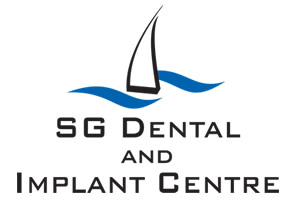What Causes Loose Teeth?
Burton dentist, Dr Mike Allen discusses common causes of ‘wobbly’ teeth
For some of us, it may be further back in our memories than we care to remember, but most of us will probably be able to recall when we were children and had a tooth that became wobbly, and may have even been just hanging on by a thread of skin from our gums. Wobbly teeth can occur both in young children and adults but whilst it is natural in children, adults who have loose or wobbly teeth should be concerned and arrange to see one of our Burton dentists to examine them.
Wobbly teeth in young children
At Mike Allen’s Dental Practice, we offer dental care to both young and old. As you can imagine then, we see a lot of wobbly teeth in children as they develop through the years.
As parents, we are always happy to see our young children’s first teeth erupt, although not always the discomfort to the child that can come with this. These teeth will help to wean children away from liquid and soft foods and onto a more varied and solid diet. The ‘baby teeth’ are temporary of course and will only last a few years but even so, it is important to look after them and keep them healthy so that the children don’t suffer from toothache and are able to eat comfortably. Premature loss of these teeth can also cause issues with speech development.
Eventually, the ‘baby’ teeth start to become loose as the adult teeth develop underneath them. Contrary to what some people might think, it is not the adult teeth beneath them that are pushing them through which causes them to become loose and wobbly, but the reabsorption by the body of the roots of the first teeth. As the roots vanish, the teeth become loose and will eventually fall out, leaving a space for the adult teeth to erupt.
Whilst most first teeth will come out reasonably easily, we do encourage our patients not to twist, pull or even worse, try some of the silly DIY removal techniques you see on the Internet. These dramatic actions may remove the tooth but can also cause damage to the gum. Most first teeth will eventually come out quite naturally but if you find that your child has a particularly problematic one, please contact our Burton dentist surgery for advice.
Wobbly adult teeth
Whilst loose teeth in young children is natural and to be expected, this is not the case with our adult patients. A loose or wobbly tooth in an adult is a sign that something is wrong. The most likely causes of these are damage to the affected teeth or periodontal problems.
Physical damage to the tooth that comes from a blow to the face could cause this problem in two ways. It may have actually broken the tooth but beneath the gum line, causing the tooth to be held in place only by soft tissue of the gums. The other way is that the bone structure surrounding the tooth could have become damaged, causing the tooth to be less well supported. There is a good chance that discomfort will be felt in either of these cases and if you have received a significant blow to the face, you should first of all be checked for any head trauma at your local A&E before you contact the dentist.
The second, and more common, reason for loose teeth in adults is when periodontitis is present.
Neglecting our gum health is likely to lead to us having gum disease. Caught in its earlier stage, known as gingivitis, this is often relatively straightforward to treat and manage, with better home cleaning and also a professional ‘scale and polish’ from a dental hygienist. At this stage, it is only the gums that are affected.
If gingivitis is left untreated, it is likely to become more advanced and progress to a condition known as periodontitis. At this stage, not only the gums are affected but also the root of the tooth and the surrounding bone structure. As the bone starts to degrade, our teeth will become less stable and loose and may eventually fall out. A similar disease, known as peri-implantitis can occur when dental implants are placed and can lead to their failure if not treated.
In a healthy individual, there really is no need for gum disease to reach this stage. Early intervention is key to preventing it. For those who ignore the early signs or who don’t see a dentist for check ups, a more invasive treatment known as a ‘deep clean’ may be necessary to reduce the risk of tooth loss caused by periodontitis.
Whereas a scale and polish can be performed by the hygienist, a suitably qualified dentist will need to perform a deep clean. This is an invasive treatment which will require a local anaesthetic and access beneath the gum line in an attempt to clean the tooth root and bone of any bacteria and infection. It should be noted that, whilst this treatment can have beneficial results, it is not a guaranteed success and, of course, prevention is a much better strategy.
We are still awaiting news on when we might be able to open our dental practice again. Once we are able to do this, if you have missed your regular check up appointment, we will be in contact with you in due course to reschedule it.
If you are not registered with a dentist and live in the Burton area, appointments can be made as soon as we are open again by calling Mike Allen’s Dental Practice on 01283 845345.
